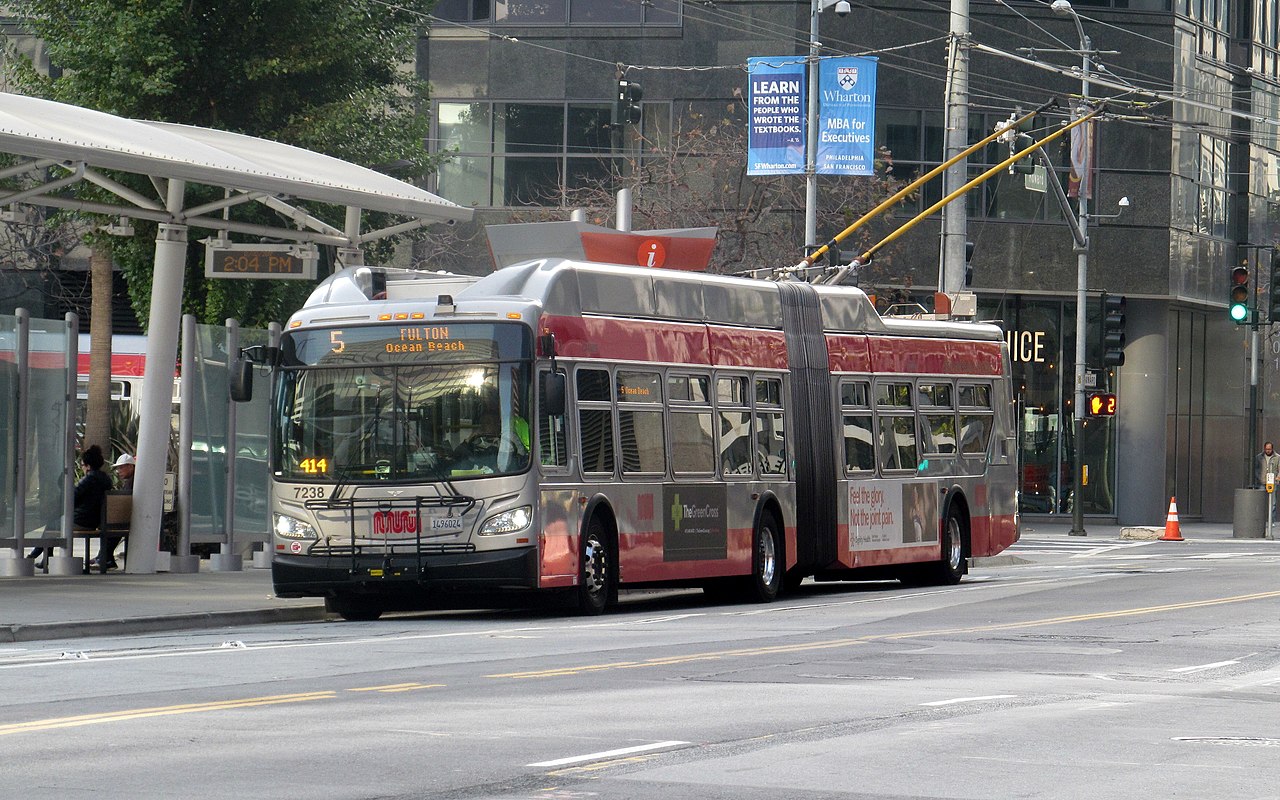Streetsblog was cc'd on a letter to Mayor Lurie from MuniNowMuniForever, a coalition formed from the San Francisco Transit Riders, Streets for All, Livable City, the San Francisco Bicycle Coalition, and a dozen other advocacy groups. Streetsblog figured all readers would want to see it too.
October 17, 2025
Mayor Daniel Lurie
1 Dr Carlton B. Goodlett Place
Room 200
San Francisco, CA 94102
RE: Ensuring a successful Muni funding measure in 2026.
Dear Mayor Lurie,
We appreciate that your office is considering a local ballot measure to fund Muni via a parcel tax. Even if a regional funding measure passes at the ballot, Muni will still face a growing annual deficit of over $150 million. The stakes could not be higher. San Francisco’s economic recovery, climate goals, and basic mobility for working people all depend on a stable, well-funded public transit system.
To make this measure truly effective, we urge your administration to design a winnable, fair, and ambitious parcel tax that meets the following principles, which we have identified through extensive public outreach with voters, community organizations, and Muni riders:
- Go above and beyond filling the budget deficit–a local measure should generate at least $262M per year. Together with the regional measure, the local measure must be large enough to not only close Muni’s projected operating shortfall, but also to deliver tangible improvements to Muni service. When talking to voters, the message is clear: They do not want to pay more money for less service. Right now, Muni service is the lowest it has been in over a decade (except for in the immediate reaction to the pandemic) and riders on more than half of all daytime Muni routes must endure overcrowding at some point during the day. Based on our coalition’s outreach, San Franciscans overwhelmingly want an end to service cuts, and, at minimum, a 10% increase to current operating levels – an increase that would bring us back in line with pre-pandemic norms and set Muni up for future growth. It is unrealistic to expect Muni ridership to grow without investments into expanding Muni service. Together with the regional measure, a $262M local measure would generate enough funding to increase current service by 10% or provide other needed improvements. For more financial and other details, please see the attached “Go for 10!” document.
- Structure the parcel tax with a variable rate to make it as fair and equitable as possible. In order to be most popular with San Francisco voters, the tax must be structured to generate more from the taxpayers with the greatest means. In the context of a parcel tax, that means the tax should be structured with a variable rate such that San Francisco’s largest properties contribute the most. Single-family homeowners should not be asked to pay the same amount as Salesforce Tower. Last year, statewide, 17 out of the 18 variable rate parcel taxes on the ballot passed overwhelmingly, demonstrating a broad preference for this type of tax. A recent survey on the regional transit measure also showed that San Franciscans prefer a more progressively-structured tax. A variable-rate tax would ensure fairness while protecting lower-income property owners through targeted exemptions or rebates. This measure should lift up working San Franciscans, not add to their burdens.
- No pass-through to tenants. Strong tenant support will be a mandatory component to pass a significant parcel tax, so, wherever possible, the measure must not allow for any portion of the tax to be passed through to tenants. The structure of this measure should reflect that tenants, including residents and small businesses, are already facing an affordability crisis, and should therefore not introduce additional passthroughs that would worsen housing insecurity or harm small business owners. The overwhelming majority of San Franciscans are renters; we risk hurting the measure’s support if tenants feel alienated.
- Index for inflation or future needs. To avoid repeating today’s funding crisis, the measure must be indexed for inflation or otherwise scaled to grow with operational costs over time. A stagnant tax will quickly erode in value, forcing us into a similar Muni funding crisis in a few years.
Public transit is the backbone of a prosperous, equitable, climate-friendly, and sustainable city. We have an opportunity to stabilize Muni and invest in the city’s future. As you know, a thriving Muni system is critical to a thriving economy, as Muni delivers nearly half a million trips each day that we cannot afford to lose. We urge your administration to ensure the transit funding measure delivers a positive future for San Francisco by meeting the principles outlined above. We also request an opportunity to speak with you directly regarding these principles before your proposal is drafted so we may discuss them in more detail. Our coalition has extensive grassroots power and experience working on local funding measures. We know firsthand the positive difference it makes to run a ballot measure people are excited about. We are concerned that this measure will not pass if it does not provide clear benefits to voters. We look forward to continuing to work with your office and city departments to deliver a measure that meets these principles, presents a clear vision for future growth, and earns broad community support.
Sincerely,
The following orgs:







